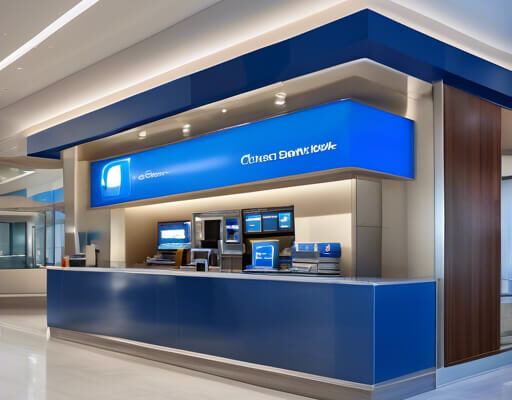The privilege to manage someone’s financial affairs comes with a crucial element: trust. With this being so, can you really trust financial advisors? Can a financial advisor steal your money? Despite a majority of them being reputable professionals, there are those who are dishonest. The importance of careful selection and ongoing oversight of these professionals have been underscored by instances of fraud and embezzlement.
Can a financial advisor steal your money? Unfortunately, they can. It is possible for financial advisors to steal your money especially if they are not ethically upright, are untrustworthy, and lack integrity. Such kind of financial advisors accomplish this through two main ways: direct and indirect.
Under indirect, they outright transfer money from your accounts to their own. They can even decide to misuse your funds for unauthorized processes. For indirect theft, various unethical practices that may not be outright illegal are used. For example, they indulge you in unsuitable investments by recommending high-risk investments that are inappropriate for your risk tolerance or financial goals. They may even make many unnecessary trades simply to generate commissions for themselves or even charge excessive or undisclosed fees.
How to Select a Trustworthy Financial Advisor
In order to not lose your hard-earned money, you have to get a financial advisor who can be trusted. This is not a simple process, but it can get simple if your colleagues or friends have one in mind. But be careful as they might have other plans which you might not be aware of.
Qualifications and Credentials Verification
The first step in vetting the credibility or trustworthiness of a financial advisor is examining their credentials and qualifications.
A reputable advisor should be able to produce the necessary certifications and qualifications relevant to their field. To start the process, you need to confirm the advisor is not only licensed but also registered with the appropriate regulatory authorities. It is this validation that makes sure that the advisor is recognized and authorized to provide financial advice within the legal framework.
You will also need to explore the advisor’s professional affiliations. For the advisor to be reputable, they would have to align themselves with a recognized industry association. This showcases a commitment to ethical standards and ongoing professional development.
Conducting Background Checks
Undertaking background checks stands as a cornerstone of due diligence.
Conducting these checks entails delving into the advisor’s professional history with the aim of uncovering any red flags that might compromise their trustworthiness. A key aspect of the process is investigating their disciplinary history through relevant regulatory bodies. This is because if a professional has a disciplinary issue, the case is reported and it is indicated under the professional’s account or registration number.

Professional bodies are repositories of information regarding any disciplinary actions taken against financial professionals. If the advisor has a clean disciplinary record, then this can instill confidence in their reliability and adherence to professional standards. Any previous infractions warrant careful consideration and further scrutiny.
Transparent Fee Structures
In order to have a transparent and trustworthy relationship, you and your advisor need to have a good understanding of the financial arrangement. Compensation structures adopted by financial advisors do vary with a key distinction being fee-only advisors.
Fee-only advisors tend to derive their income solely from client fees. This eliminates potential conflicts of interest associated with commissions on financial products. It is the alignment of the advisor’s incentives with your financial goals that build transparency.
It is important to engage in an open and candid discussion to clarify the fee structure comprehensively. This would make sure that it is in alignment with your financial objectives and preferences.
Related Post: Why I Quit Being a Financial Advisor
Regular Review of Account Statement and Transactions
An akin to keeping a watchful eye on the pulse of your financial health is scrutinizing your account statements and transactions regularly. This allows you to track the inflow and outflow of funds.
This vigilance is particularly crucial in promptly identifying any unauthorized or suspicious activities. Cases of fraud or unauthorized transactions can take place if you are dealing with an untrustworthy advisor. By consistently reviewing your statements, you get to increase the likelihood of catching irregularities early.
You can even decide to utilize technology. Use online banking platforms, mobile apps, and other digital tools to effectively monitor your financial accounts. Automated alerts for large transactions, unusual activities, or low balances also provide an additional layer of protection. This enhances your ability to swiftly respond to any issue.
Considering Diversification Strategies
The old-age adage of not putting all your eggs in one basket holds particularly true in the investment realm. Diversification entails spreading your investment across various assets like stocks, bonds, real estate, and commodities.

In itself, diversification is a risk mitigation strategy. It assists in mitigating the impact of market fluctuations, economic downturns, or unexpected events affecting a specific sector or asset class. Diversifying helps to reduce the risk of substantial financial losses connected with the underperformance of a single investment.
Over-relying on a single advisor or investment avenue can expose you to concentrated risks. The recommendations or performance of a certain investment might not always align with the market conditions. By diversifying your investments and seeking advice from multiple sources, you get to create a more resilient and adaptable portfolio.
Communication with Your Financial Advisor
Establishing a strong rapport with your financial advisor starts with cultivating open lines of communication. This is something that entails more than just occasional updates. You need to foster an environment where questions and concerns are welcomed and promptly addressed.
While communicating with your advisor, do not shy away from asking questions. Whether you are seeking clarification on investment choices or understanding the rationale behind a particular strategy, it is your proactive inquiries that contribute to a more informed decision-making process.

You also have to establish a routine for updates and reviews. Regular check-ins with your advisor provide opportunities to discuss any changes in your financial situation, goals, or risk tolerance. It is this ongoing dialogue that ensures that your advisor remains informed and in a position to make adjustments to your financial plans as needed.
Do not forget about communication being a two-way street. Cultivate a feedback loop where both you and your advisor are able to openly share thoughts and concerns.
3 Signs of a Trustworthy Advisor
A trustworthy advisor operates with transparency. They offer clear and comprehensive answers to questions and avoid jargon. They also make sure that you, as their client, fully comprehend the intricacies of your financial plan.
They are also prompt when addressing concerns. Whether it is market volatility, changes in personal circumstances, or uncertainties about specific investments, they address them promptly. Their commitment to timely communication serves as a demonstration of a genuine dedication to your financial peace of mind.
A good and trustworthy advisor is adaptable to evolving needs. Whether it entails adjusting the asset allocation of your portfolio or revisiting your long-term goals, they are committed to your financial well-being. Due to this, they remain flexible and responsive to your evolving needs.
Final Remarks
It is unfortunate that a financial advisor can steal your money. Although it is not a big percentage, a certain percentage of them can. Human beings are not all the same, there are those who are straight in the way they gain their wealth and there are those who use unethical means like stealing.
In case you suspect any wrongdoing. It is important that you take an immediate action. Contact regulatory authorities to report the issue and seek legal advice for guidance on the next steps. Early intervention is crucial in mitigating potential financial losses, this is why it is important to spot a trustworthy financial advisor and an untrustworthy one.








